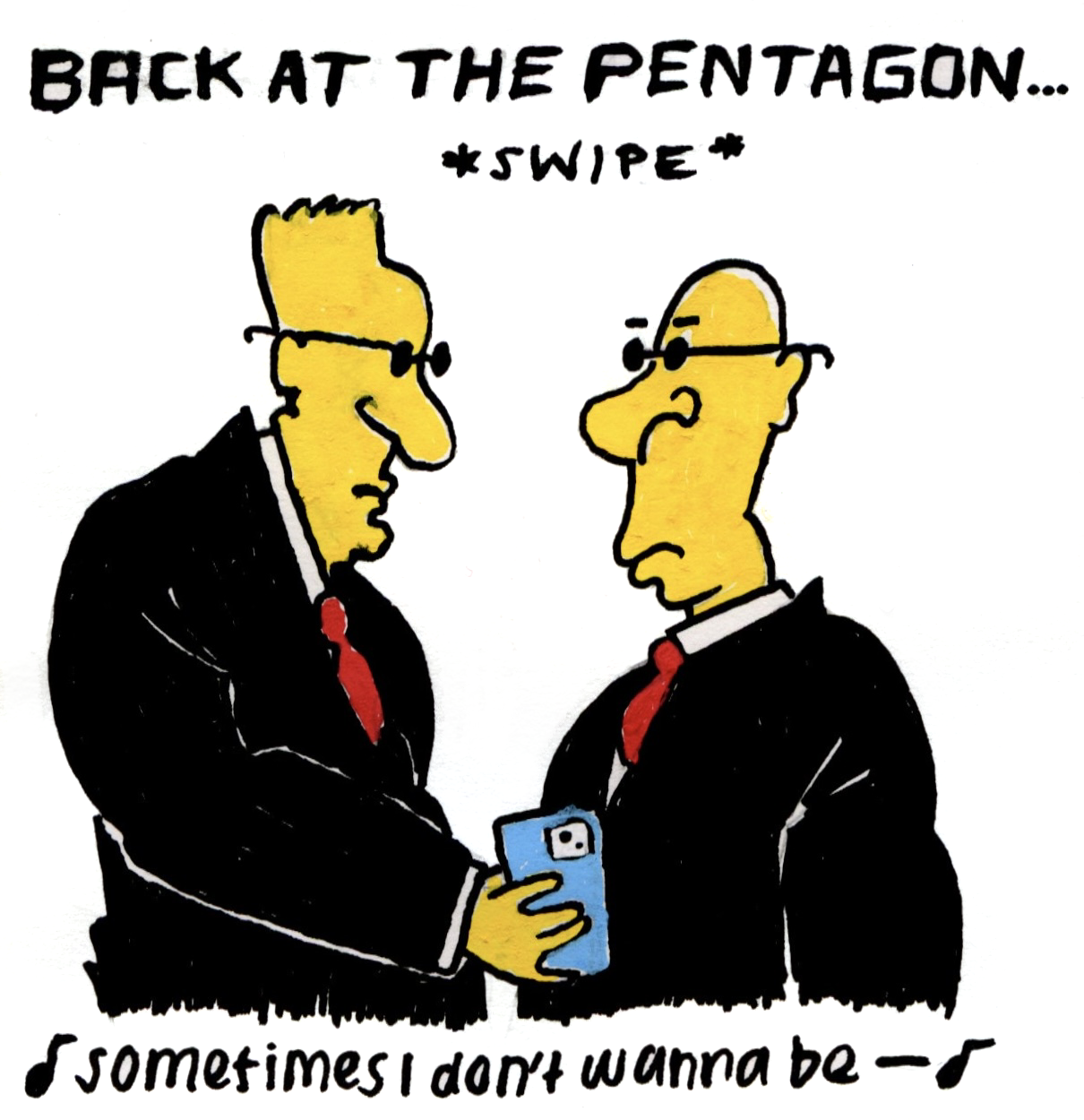
As the U.S. government moves to address concerns around Chinese intelligence gathering via TikTok, a popular social media application, the focus of many Whitman students lies on the addictive nature of the app.
The Deterring America’s Technological Adversaries (DATA) Act stems from concerns around the Chinese government accessing user data, as well as worries about propaganda being pushed by the app’s algorithm. Officials, including Senator Mark Warner (D-Virginia), have cited classified documents that reportedly give credence to these fears.
If passed, the DATA Act would provide six months for TikTok’s parent company ByteDance to sell the platform. If it failed to do so, TikTok would be banned in the United States. The Act passed the House of Representatives with a 352-65 vote and is now under review by Senate committees.
When asked about their relationships with TikTok, all interviewed students described themselves as currently or previously addicted to the app.
First-year Autumn Litten said that they deleted TikTok around a year and a half ago.
“I was addicted and my screen time would be like eight hours a day, and then one day I was like ‘what will happen if I delete [TikTok]?’ It turns out nothing other than maybe getting more sleep,” Litten said.
She suggested that she was not alone in finding the app addictive, and said she notices her peers frequently using it.
“Even in class, I see people scrolling on TikTok. There’s no way that it can be beneficial to someone,” Litten said.
Junior Basil Shevtsov also deleted TikTok due to concerns about his own addiction.
“[I felt] that it infected my brain,” Shevtsov said.
Senior Astrid Ketcham described her experience on TikTok as “positive.”
“I’m an art major, and I get a lot of inspiration. I see a lot of really cool artists, a lot of really interesting techniques, maybe little snippets of the history of certain artworks and so, from that standpoint, it’s amazing,” Ketcham said.
Still, she sees the platform as addictive.
“I am chronically on TikTok, and I have to put a timer on it — not to stop me from watching TikTok, but to let me know how long it’s been,” Ketcham said.
All three students agreed that TikTok is uniquely addictive.
“People don’t talk about Instagram Reels the way they talk about TikTok,” Shevtsov said.
Associate Professor of Sociology Alvaro Santana-Acuña, who teaches a class on the Sociology of Big Data, explained that TikTok’s unique algorithm is the cause.
“The YouTube algorithm [for example] would take several sessions to get a profile of you. TikTok is already producing customized content for you in under 45 seconds. So in less than a minute, already TikTok is producing a profile that will get you addicted to their content,” Santana-Acuña said.
Santana-Acuña went on to explain the importance of data in the current age.
“The oil of the 21st century is data, so whoever controls data controls the world,” Santana-Acuña said.
Data harvesting is somewhat concerning to Litten.
“I sometimes do worry about [my data being harvested] but then other times I’m like, ‘well, I’m not directly being impacted.’ I don’t know. It’s a scary thought and I kind of talk myself out of it. . . Like what can you do?” Litten said.
“[Data gathering] is concerning on a societal level but not on a personal level,” Shevtsov said.
He explained that he thinks the sacrifice of data is one that people are willing to make.
“Most people are willing to sacrifice their information in exchange for these products,” Shevtsov said.
Ketcham expressed a similar lack of personal concern.
“I know my phone number definitely got sold. . . I don’t care. I have to click a button to end a call. I think until someone steals my identity, I’m not going to worry,” Ketcham said.
Santana-Acuña explained that this normalized lack of privacy will be major in the coming years.
“The moment that we go online, everything that we do is being recorded,” Santana-Acuña said. “Recovering our privacy is actually going to be one of the social battles of the 21st century.”
As for whether they would support a ban, student concerns remained centered on issues of addiction.
“I think it’s super harmful for especially young kids, like all social media is, but I think TikTok’s especially harmful in many ways and I think that [banning it] would be a positive change,” Litten said.
“The world would be better off without TikTok,” Shevtsov said.
At the same time, Shevtsov questioned whether banning TikTok should be within the government’s power.
“Should the government have the ability to ban an app? I don’t have an answer for that,” Shevtsov said.
Santana-Acuña explained that he is “more concerned about the geopolitical consequences.”
“We’re actually now at a moment when clearly there is tension between the United States and China. . . Wars in the 21st century could actually happen over control of users’ data. And if that were the case, then the banning of TikTok would actually be the first chapter of that rising conflict,” Santana-Acuña said.
As for social media addiction, Ketcham thinks that regardless of TikTok being banned, it’s here to stay.
“With the world evolving and technology the way that it is, there’s just going to be another thing [to replace TikTok],” Ketcham said.





